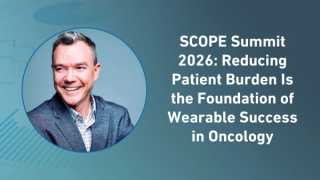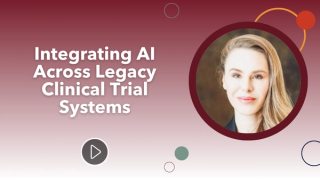
eClinical
Latest News

Latest Videos
More News

Strong relational governance between technology vendors and sponsor–CRO teams is becoming a critical foundation for eCOA trial success, enabling faster study launches, clearer communication, proactive issue management, and sustained quality across entire trial portfolios.

AI-driven discovery, EHR-based real-world evidence, and synthetic patient modeling are rapidly reshaping drug repurposing, reducing development timelines, expanding therapeutic applications, and accelerating regulatory acceptance of computational approaches.

As clinical trials become more complex and decentralized, the role of the CRA is evolving from site monitor to strategic, digitally fluent partner, requiring expertise in hybrid oversight, risk-based monitoring, and multi-system data management.

As decentralized and hybrid trial models expand, eConsent is emerging as a critical tool for improving participant understanding, reducing site burden, and strengthening data integrity through digital automation, accessibility, and regulatory compliance.

The convergence of AI, decentralized technologies, behavioral science, and real-world evidence opens the door to a new era in which the clinical trial industry proactively addresses participation barriers, integrates social determinants of health, and reimagines patient centricity.

As clinical research becomes increasingly digital, integrating rigorous cybersecurity assessments into CRO selection and qualification is essential to safeguard sensitive data and ensure trial integrity.

New guidance and technology advances are reshaping eClinical systems, positioning them as tools to accelerate enrollment, improve data quality, and reduce site and patient burden.

How the application of artificial intelligence, broader use of real-world evidence, decentralized clinical trials, master protocols, and risk-based quality monitoring, together with strong ethical oversight and increased collaboration, are contributing to better healthcare delivery and strengthening the role of clinical research in driving global health progress.

Why future-ready pharma companies must embrace AI-driven, real-time decision-making.

AI as an accelerator for data-centric, process-centric, and human-centric clinical research.

As clinical research increasingly relies on RWD to enhance trial design and patient insights, tokenization has emerged as a critical solution for securely linking disparate datasets while protecting patient privacy.

How human-centered AI that is focused on customer, user, and employee experience can drive real transformation in clinical trials and beyond by aligning intelligent technologies with the people who use them.

As wearable ECG technology advances, cardiac safety studies in clinical trials are evolving to capture richer, continuous heart data while reducing patient burden.

In this Q&A, Megan Bailey, EVP and president of central laboratories and international, Labcorp, discusses how central labs are evolving beyond testing to become strategic partners in clinical trial success.

Overcoming hurdles with licensing complexities, post-production changes, and IRB submissions can help in reducing timelines and increasing collaboration.

Strategies for ensuring that innovation with PROs remains parallel with advancements in disease detection and progression.

Addressing data integrity and compliance concerns.

Pilot trial shows that a user-friendly electronic patient-reported outcome (ePRO) monitoring system significantly improves patient-centered cardiovascular care by enhancing patient-physician communication, increasing clarity in treatment explanations, and empowering patients with better knowledge of their conditions.

Using surveys to collect various viewpoints on eConsent from ethics, sponsors, and vendors.

A use case by Memorial Sloan Kettering Cancer Center explores the potential of EHR-to-EDC.

Five industry leaders share their perspectives on the evolution of DCTs.

Designing eConsent for each study from a stakeholders’ value, not technology perspective.

After a period of "fits and starts," large pharma companies are increasingly investing in digital health tools to reach business goals, be they through internal investments or strategic partnerships.

Key considerations in deploying fit-for-purpose digital health technologies in drug development.

Factors that contribute to Japan's prominent position in the rapidly evolving field of digital therapeutics and why it matters to the global life sciences industry.










